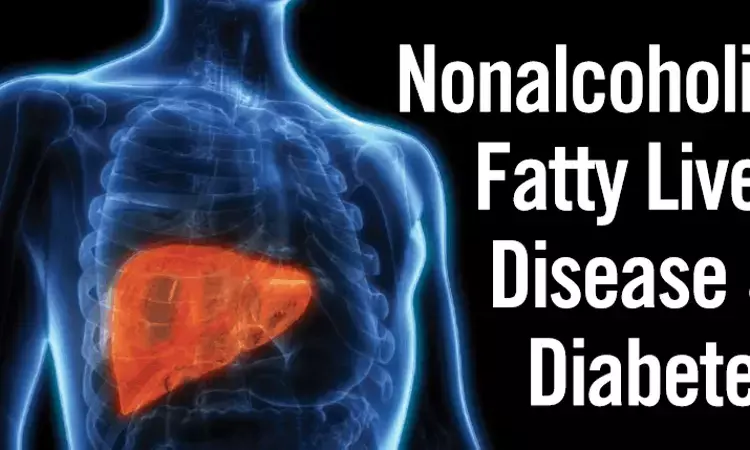- Home
- Medical news & Guidelines
- Anesthesiology
- Cardiology and CTVS
- Critical Care
- Dentistry
- Dermatology
- Diabetes and Endocrinology
- ENT
- Gastroenterology
- Medicine
- Nephrology
- Neurology
- Obstretics-Gynaecology
- Oncology
- Ophthalmology
- Orthopaedics
- Pediatrics-Neonatology
- Psychiatry
- Pulmonology
- Radiology
- Surgery
- Urology
- Laboratory Medicine
- Diet
- Nursing
- Paramedical
- Physiotherapy
- Health news
- Fact Check
- Bone Health Fact Check
- Brain Health Fact Check
- Cancer Related Fact Check
- Child Care Fact Check
- Dental and oral health fact check
- Diabetes and metabolic health fact check
- Diet and Nutrition Fact Check
- Eye and ENT Care Fact Check
- Fitness fact check
- Gut health fact check
- Heart health fact check
- Kidney health fact check
- Medical education fact check
- Men's health fact check
- Respiratory fact check
- Skin and hair care fact check
- Vaccine and Immunization fact check
- Women's health fact check
- AYUSH
- State News
- Andaman and Nicobar Islands
- Andhra Pradesh
- Arunachal Pradesh
- Assam
- Bihar
- Chandigarh
- Chattisgarh
- Dadra and Nagar Haveli
- Daman and Diu
- Delhi
- Goa
- Gujarat
- Haryana
- Himachal Pradesh
- Jammu & Kashmir
- Jharkhand
- Karnataka
- Kerala
- Ladakh
- Lakshadweep
- Madhya Pradesh
- Maharashtra
- Manipur
- Meghalaya
- Mizoram
- Nagaland
- Odisha
- Puducherry
- Punjab
- Rajasthan
- Sikkim
- Tamil Nadu
- Telangana
- Tripura
- Uttar Pradesh
- Uttrakhand
- West Bengal
- Medical Education
- Industry
Saroglitazar beneficial for treatment of patients with NAFLD/NASH: Study

USA: The administration of Saroglitazar 4 mg significantly improves liver parameters and histology and reduces the risk of cardiovascular disease in patients with non-alcoholic fatty liver disease (NAFLD), a recent study has found. The study findings appear in the journal Hepatology.
NAFLD is a condition in which excess fat is stored in the liver. It is characterized by dysregulated lipid and glucose metabolism and insulin resistance. Saroglitazar is a dual peroxisome proliferator-activated receptor-α/γ agonist that is known to improve insulin sensitivity, and lipid and glycemic parameters. In animal studies, saroglitazar improved NASH histology. Naga Chalasani, Gastroenterology & Hepatology, Indiana University School of Medicine, Indianapolis, IN, and colleagues, therefore, aimed to evaluate the efficacy and safety of saroglitazar in patients with NAFLD/NASH in a randomized controlled clinical trial.
The study included a total of 106 patients with NAFLD/NASH with alanine aminotransferase (ALT) ≥ 50 U/L at baseline and body mass index ≥25 kg/m2. They were randomized in a ratio of 1:1:1:1 to receive a placebo or saroglitazar 1 mg, 2 mg, or 4 mg for 16 weeks.
The primary efficacy endpoint was a percentage change from baseline in ALT levels at week 16. Liver fat content (LFC) was assessed by MRI proton density fat fraction.
Based on the study, the researchers found the following:
- The least-squares mean percent change from baseline in ALT at week 16 was −25.5%, −27.7%, and −45.8%, with saroglitazar 1 mg, 2 mg, and 4 mg, respectively, versus 3.4% in placebo.
- Compared with placebo, saroglitazar 4 mg improved LFC (4.1% vs. −19.7%), adiponectin (−0.3 μg/mL vs. 1.3 μg/mL), homeostatic model assessment–insulin resistance (−1.3 vs. −6.3), and triglycerides (−5.3 mg/dL vs. −68.7 mg/dL).
- Saroglitazar 4 mg also improved lipoprotein particle composition and size and reduced lipotoxic lipid species. Saroglitazar was well-tolerated.
- A mean weight gain of 1.5 kg was observed with saroglitazar 4 mg versus 0.3 kg with placebo.
The researchers concluded, "Saroglitazar 4 mg significantly improved ALT, LFC, insulin resistance, and atherogenic dyslipidemia in participants with NAFLD/NASH."
Reference:
The study titled, "Saroglitazar, a PPAR-α/γ Agonist, for Treatment of NAFLD: A Randomized Controlled Double-Blind Phase 2 Trial," is published in the journal Hepatology.
DOI: https://aasldpubs.onlinelibrary.wiley.com/doi/10.1002/hep.31843
Dr Kamal Kant Kohli-MBBS, DTCD- a chest specialist with more than 30 years of practice and a flair for writing clinical articles, Dr Kamal Kant Kohli joined Medical Dialogues as a Chief Editor of Medical News. Besides writing articles, as an editor, he proofreads and verifies all the medical content published on Medical Dialogues including those coming from journals, studies,medical conferences,guidelines etc. Email: drkohli@medicaldialogues.in. Contact no. 011-43720751


